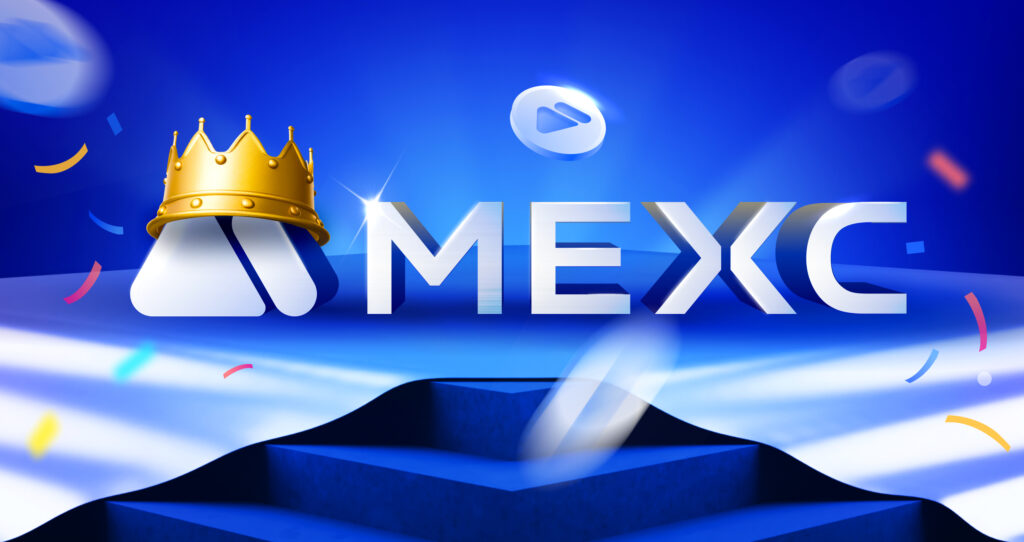
6 minute read
MEXC vs Margex Comparison: Which is better?
from MEXC
by Exness_India
When it comes to choosing a cryptocurrency exchange, traders are often faced with an overwhelming number of options. Two platforms that have gained notable attention are MEXC vs Margex. If you are wondering which one is better for your trading needs, the answer depends on your goals, trading style, and preferred features.
This article will go straight to the point and compare both platforms in terms of fees, security, trading tools, asset variety, liquidity, and overall user experience so you can make an informed decision without wading through unnecessary fluff.

✅ Trade with MEXC now: Open An Account 👈
Quick Verdict: Which is Better?
If your priority is access to a huge variety of cryptocurrencies, low fees, and high liquidity, then MEXC is generally the better choice. It is ideal for spot traders, futures traders, and those seeking exposure to a wide range of altcoins with deep markets.
If your focus is margin trading with strong security, a clean interface, and a beginner-friendly experience, Margex might be more appealing. It offers a more straightforward trading environment and caters specifically to derivatives traders who want simplicity without compromising on safety.
Now, let’s break down the comparison in detail.
1. Trading Products and Market Variety
MEXC
MEXC is known for its extensive list of supported assets. It offers over 1,600 cryptocurrencies, including major coins like BTC, ETH, and BNB, as well as a vast selection of small-cap altcoins. It supports spot trading, futures trading with up to 200x leverage, staking, and launchpad participation. This variety makes MEXC particularly attractive to traders who want access to niche projects early.
Margex
Margex takes a more focused approach, offering around 13 trading pairs with up to 100x leverage. Its emphasis is on perpetual contracts rather than a wide selection of coins. This narrower focus may be limiting for traders looking to diversify across multiple assets but can be a plus for those who prefer a streamlined list of high-liquidity markets.
Verdict: MEXC wins for market variety, while Margex offers a simpler, less overwhelming selection for focused leverage trading.
2. Fees and Costs
MEXC
MEXC’s fee structure is highly competitive. For spot trading, fees start at 0.1% and can be reduced further with MX token holdings or by paying fees in MX tokens. Futures trading fees are as low as 0.02% (maker) and 0.06% (taker). The platform often runs zero-fee promotions for spot markets, making it one of the most cost-effective exchanges in the industry.
Margex
Margex charges a flat 0.019% for makers and 0.060% for takers on perpetual contracts. There are no hidden fees, and the funding rate is applied every 8 hours depending on market conditions. While its rates are competitive for derivatives, Margex does not offer the same low or zero-fee promotions for spot markets because it doesn’t have a spot market.
Verdict: MEXC offers more flexibility and potential for lower fees, especially for spot traders.
3. Leverage and Risk Management
MEXC
On MEXC, leverage can go up to 200x for certain futures pairs, although most traders prefer more moderate levels for risk control. It also offers features like stop-loss, take-profit, and trigger orders. However, such high leverage can be dangerous for beginners.
Margex
Margex offers up to 100x leverage on its perpetual contracts. What sets Margex apart is its anti-liquidation system, which helps reduce the chances of sudden liquidation during volatile price swings. This feature is particularly useful for traders who want extra protection against market spikes.
Verdict: MEXC wins on maximum leverage, but Margex stands out for having better built-in risk protection.

✅ Trade with MEXC now: Open An Account 👈
4. Liquidity and Trading Volume
MEXC
With its global user base and wide range of assets, MEXC boasts strong liquidity across major and minor pairs. High liquidity ensures tighter spreads and less slippage, which is critical for active traders and those executing large orders.
Margex
Margex has decent liquidity for the major trading pairs it offers but cannot match the depth and breadth of MEXC. For most retail traders, liquidity is adequate, but for high-frequency or institutional-scale trading, MEXC’s deeper markets may be preferable.
Verdict: MEXC is stronger in liquidity, especially for a wide variety of assets.
5. Security and Trust
MEXC
MEXC has not experienced major security breaches since its launch in 2018. It employs standard security measures such as cold storage, two-factor authentication (2FA), and withdrawal whitelists. However, it operates without a major regulatory license, which may be a concern for highly compliance-focused traders.
Margex
Margex heavily emphasizes security. All assets are stored in multi-signature cold wallets, and the platform’s infrastructure is designed to prevent breaches. Margex has a clean track record with no hacks since its launch in 2020. It also doesn’t require KYC for small withdrawals, appealing to privacy-conscious traders.
Verdict: Both are secure, but Margex’s smaller scale and focus on safety give it a slight edge for traders prioritizing security.
6. User Interface and Experience
MEXC
MEXC’s platform offers advanced charting tools via TradingView, multiple order types, and a range of features catering to experienced traders. While powerful, the interface can feel cluttered for beginners due to the sheer number of options and markets.
Margex
Margex is designed with simplicity in mind. Its interface is clean, minimalistic, and easy to navigate. Beginners will find it less intimidating, while still offering enough tools for experienced derivatives traders.
Verdict: Margex wins for beginner-friendliness, MEXC for advanced functionality.
7. Deposit and Withdrawal Options
MEXC
MEXC supports a wide range of deposit methods, including crypto transfers and third-party fiat on-ramps. Withdrawal processing is relatively quick, although some assets may have higher fees than others.
Margex
Margex supports crypto-only deposits and withdrawals. It does not handle fiat currency directly, so users need to convert via external services before funding their accounts. While this adds an extra step, it enhances privacy for crypto-native traders.
Verdict: MEXC offers more funding options, while Margex focuses solely on crypto.
8. Extra Features
MEXC
MEXC offers staking, an ETF-like leveraged token market, launchpads for early token access, and a reward system for active traders. These extras can help traders diversify their strategies and earn passive income.
Margex
Margex’s unique extra is its anti-liquidation system and no-price-manipulation policy, ensuring fair execution even during extreme volatility. While it lacks the variety of MEXC’s ecosystem, it focuses heavily on providing a fair trading environment.
Verdict: MEXC wins for variety, Margex for fairness in execution.
Final Verdict: Which Should You Choose?
If you are looking for a one-stop-shop exchange with a massive range of coins, strong liquidity, low fees, and multiple trading products, MEXC is the better choice. It’s suited for traders who want access to both spot and futures markets, with plenty of tools and promotional offers.
If you prefer a simple, highly secure, and focused margin trading platform without the distraction of thousands of assets, Margex is ideal. It’s especially good for traders who value privacy, straightforward design, and strong liquidation protection.
In short:
Choose MEXC if you want variety, liquidity, and advanced trading features.
Choose Margex if you want simplicity, security, and a clean derivatives trading experience.
✅ Trade with MEXC now: Open An Account 👈
Read more:








